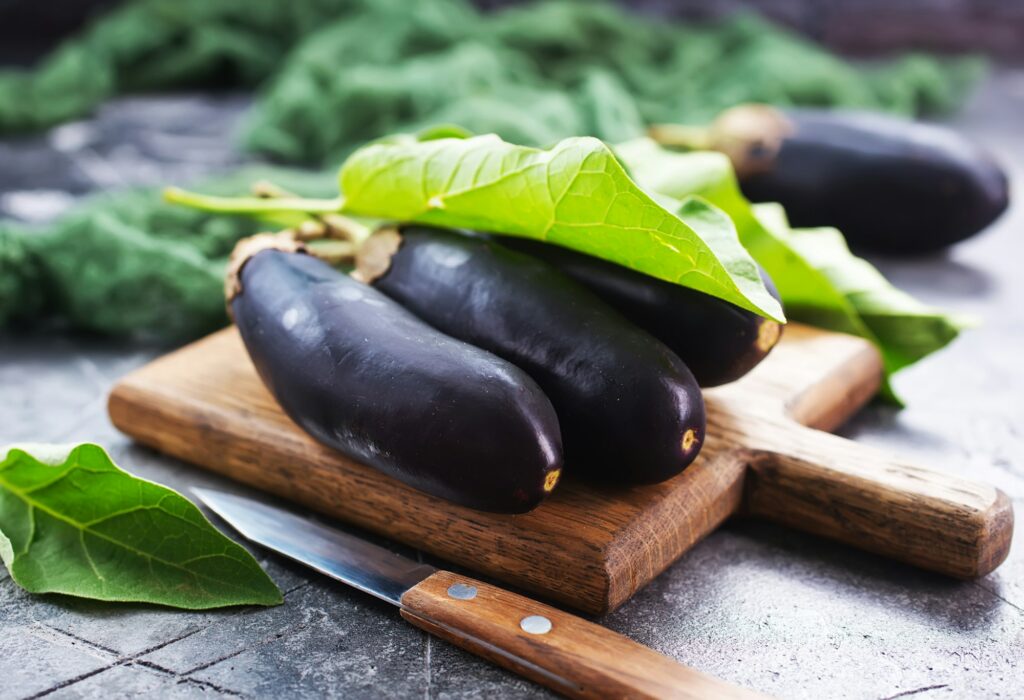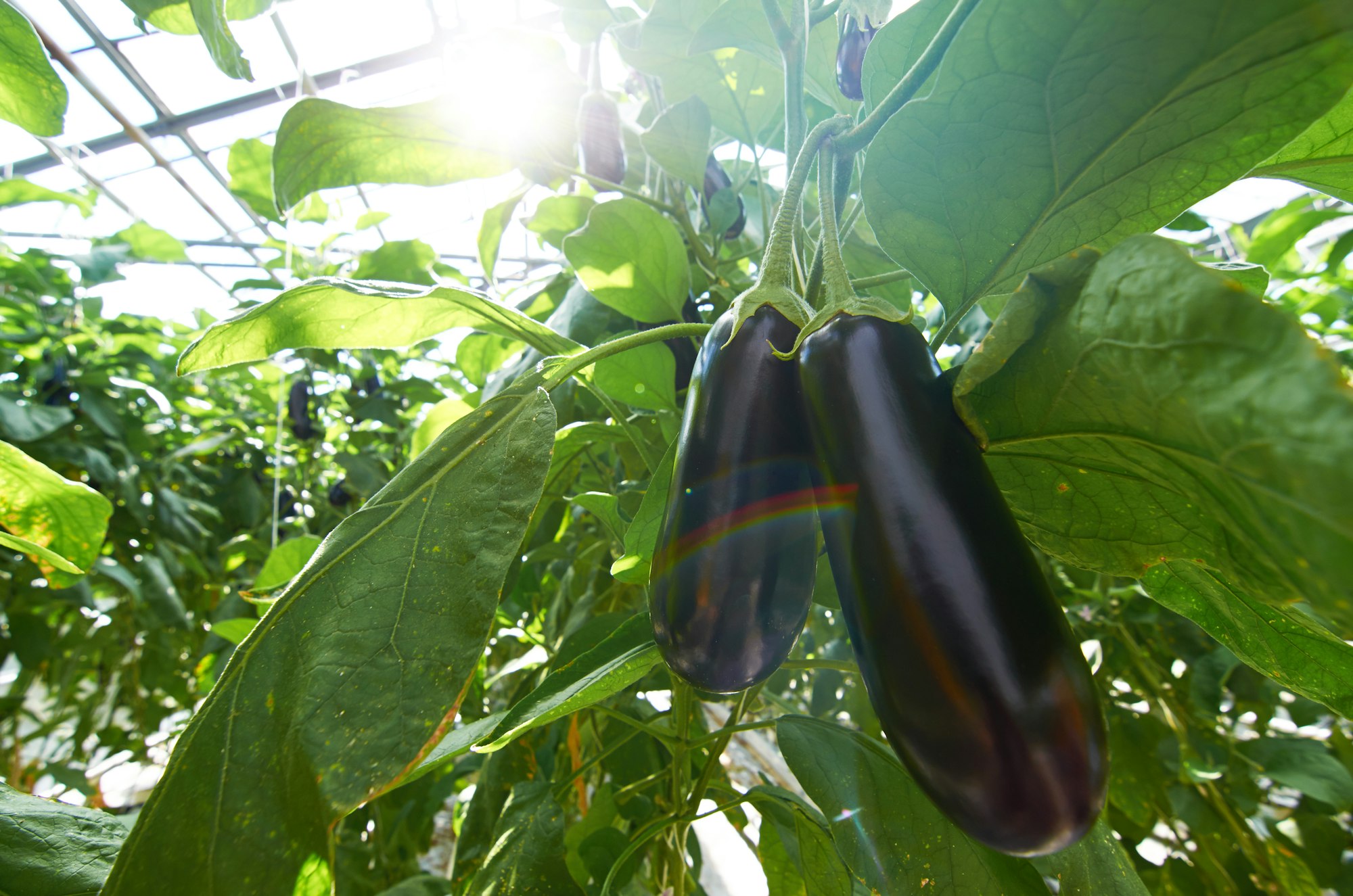The pictures in our articles might not always show exactly what the text is talking about. We use these images to make the article more interesting and eye-catching. They are there to add to the text, but not to replace it or show every detail.
Introduction
Eggplant, scientifically known as Solanum melongena, is a fascinating fruit that's commonly used as a vegetable in culinary applications. This purple powerhouse has a rich history and a multitude of interesting characteristics that make it stand out in the world of produce. From its botanical classification to its nutritional benefits, eggplants are full of surprises.
In this article, we'll explore some intriguing facts about eggplant that might change the way you look at this versatile food. Whether you're a culinary enthusiast, a gardening aficionado, or simply curious about the foods you eat, these eggplant facts are sure to captivate and inform.
Key Takeaways
- Eggplants are botanically classified as berries
- They belong to the nightshade family, along with tomatoes and potatoes
- Eggplants come in various shapes and colors, not just purple
- China is the world's largest producer of eggplants
- Eggplants are rich in fiber and antioxidants
10 Fascinating Facts About Eggplant

1. Botanical Berry, Culinary Vegetable
Despite being used as a vegetable in cooking, eggplants are botanically classified as berries. This surprising fact about eggplant showcases the often confusing line between culinary and botanical classifications.
2. A Rose by Any Other Name
The name "eggplant" originated from certain cultivars that produce white, oval-shaped fruits resembling chicken eggs. In the UK, it's known as "aubergine," while in parts of Asia, it's called "brinjal."
3. Ancient Origins
Eggplants have a long history, with origins in China and India where they've been cultivated for thousands of years. The Chinese were the first to grow eggplants systematically, dating back to the 5th century BC.
4. Perennial Plant, Annual Crop
While eggplants are perennial plants, most producers grow them as annuals. They plow and destroy the plants after harvesting the fruits, which is an interesting fact about eggplant cultivation.
5. A Rainbow of Eggplants
Eggplants come in various shapes and colors. They can be tear-drop, long and thin, round, or egg-shaped, with colors ranging from white to white with red stripes to deep purplish-black.
6. Nutritional Powerhouse
Eggplants are an excellent source of fiber and nutrients. They're also one of the top 10 plants regarding Oxygen Radical Absorbance Capacity, indicating high antioxidant content.
7. Beware of the Leaves and Flowers
Consuming eggplant flowers or leaves can be dangerous for human health due to the presence of solanine, a substance that acts as the plant's natural pesticide.
8. Warm Weather Lover
Eggplants thrive in warm climates and have a low tolerance for cold. They require a long growing season, usually 120 days or longer.
9. Global Production
China is the largest eggplant-producing country, followed by India, Egypt, Turkey, and Iran. This fact about eggplant production highlights its global importance.
10. Historical Beauty Secret
In ancient times, fashionable women used to make a black dye from eggplant skin to stain their teeth black, which would then shine like silver after polishing.
Eggplant Varieties: A Colorful Array
Eggplants come in a variety of shapes, sizes, and colors. Here's a table showcasing some popular eggplant varieties:
| Variety | Shape | Color | Flavor Profile |
|---|---|---|---|
| Globe Eggplant | Oval | Deep purple | Mild, slightly bitter |
| Japanese Eggplant | Long, thin | Light purple | Sweet, delicate |
| White Eggplant | Egg-shaped | White | Creamy, less bitter |
| Graffiti Eggplant | Teardrop | Purple with white stripes | Tender, sweet |
| Thai Eggplant | Small, round | Green or white | Slightly bitter, firm |
FAQ About Eggplant
Are eggplants healthy?
Yes, eggplants are very healthy. They're low in calories, high in fiber, and rich in antioxidants.
Can you eat eggplant raw?
While it's possible to eat eggplant raw, it's not recommended due to its bitter taste and spongy texture when uncooked.
How do you store eggplants?
Store eggplants in the refrigerator crisper drawer for up to 5-7 days. Avoid cutting them before storage as they spoil quickly once cut.
Are eggplant leaves edible?
No, eggplant leaves are not edible and can be toxic due to their solanine content.
How many calories are in an eggplant?
A medium-sized eggplant (about 550 grams) contains approximately 140 calories.
Conclusion
From its surprising botanical classification to its rich history and diverse varieties, the eggplant is truly a remarkable fruit. These facts about eggplant reveal a complex and fascinating food that has been cultivated and enjoyed for thousands of years across various cultures.
Whether you're appreciating its nutritional benefits, exploring its culinary versatility, or simply marveling at its beautiful varieties, the eggplant continues to captivate food lovers and botanists alike. As we continue to discover more about this purple wonder, one thing is certain: the eggplant will remain a beloved and intriguing part of our global food culture for years to come.






